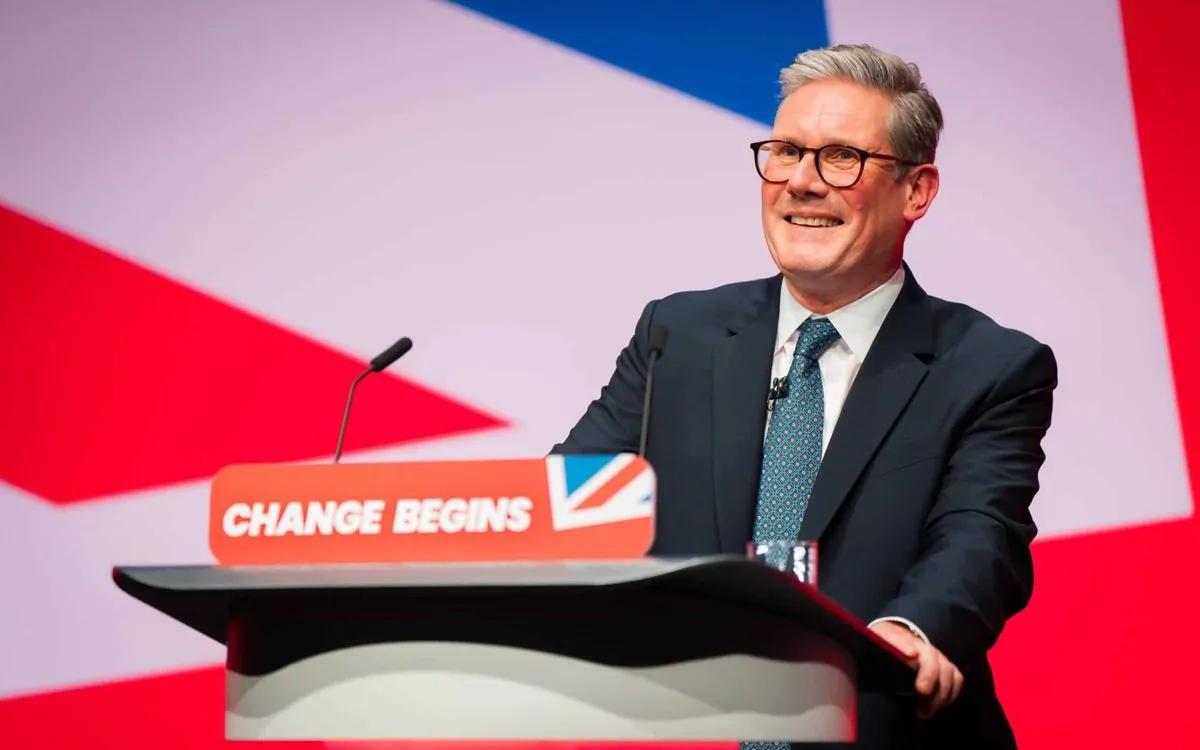Starmer's Labour: Navigating Challenges in Post-Election Britain
Keir Starmer faces early hurdles as Prime Minister, balancing party expectations with economic realities. Labour's landslide victory brings scrutiny to its policy direction and ability to deliver transformative change.

Keir Starmer, Britain's new Prime Minister, recently addressed the Labour Party conference in Liverpool, outlining his vision for the country's future. Despite receiving standing ovations, concerns linger about his leadership and policy direction.
Labour secured a significant majority in the July 4, 2024 elections, marking a historic shift in British politics. This victory came 14 years after the party's last stint in government, which ended in 2010. However, Starmer's early tenure has been marred by controversies and declining approval ratings.
The Prime Minister's speech touched on key issues, including railway nationalization and the situation in Gaza. He also condemned the "vile" racism that fueled riots across the UK in August 2024. Despite these strong statements, Starmer faces criticism for his cautious approach to governance.

Starmer's economic strategy has drawn parallels to the austerity measures implemented by Conservative governments since 2010. The upcoming budget, scheduled for October 30, 2024, is expected to be a defining moment for the new administration. Chancellor Rachel Reeves has emphasized the need for fiscal responsibility, leading to concerns about potential spending cuts.
Labour's electoral victory, while substantial in terms of seats, was based on just under 34% of the votes cast. This disproportionate result highlights the quirks of the UK's "First Past the Post" electoral system, which has been a subject of debate for years.
"People said we couldn't change the party—but we did. People said we couldn't win across Britain—but we have. People say we can't deliver national renewal—but we can, and we will."
Starmer's management of the party has been controversial. In July 2024, seven Labour MPs were suspended for voting against the party line on child benefit restrictions. This move, along with other policy decisions, has angered some party members and trade unions.
Historian David Edgerton outlines three potential scenarios for Labour's future:
1. Continued disappointment leading to a right-wing replacement
2. Becoming a more efficient, slightly more compassionate conservative party
3. Pursuing radical, center-left change (deemed least likely)
While some positive reforms are underway, including strengthened workers' rights and expanded renewable energy initiatives, questions remain about whether these amount to transformative change.
As Starmer navigates these challenges, he must balance the expectations of his party with the realities of governance. The coming months will be crucial in determining whether Labour can deliver on its promises of national renewal or if it will settle for incremental change.


































